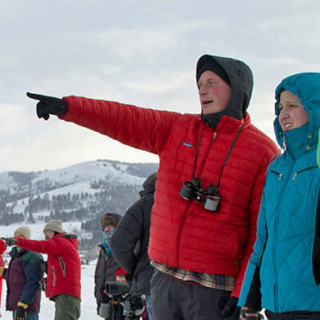Student Spotlight: Jaynee Bohart
In this episode of Confluence, Jaynee Bohart explains how the school psychology doctoral program is a perfect blend of her interests in both psychology and education.
STORY TRANSCRIPT
My name is Jaynee Bohart and I study school psychology.
My mom commonly said that I should be an engineer because I like to understand all the bits and pieces and parts of things, uh, but that particularly applied to the mind. I was always interested in why do people do the things that they do, why do they think the things that they think. When traumatic things happen to them why do they react the way they do. And I was always really interested in why there were individual differences but then also more universal phenomenons in people.
As an undergraduate, I was already pretty interested in psychology and the mind and after I took my first introductory psychology course and I just absorbed everything and everything was just fascinating to me, I really decided that that was going to be the field for me. And then later on I developed an interest in working with children, especially children who have struggled in their life with trauma and family issues, and difficulty in school.
But, I took a particular liking to kids because I feel like, oftentimes, they aren’t helped in the way that they need or they’re misunderstood. AndI felt like I had good insight into struggles as a kid. So, I thought, you know, that’s the special population that I want to help because I don’t feel like there’s enough people helping them already.
I really liked being in academia so I thought maybe a Ph.D. would be a good track for me, and I didn’t want to stop at a master’s degree knowing that I was interested in research and knowing that I was interested in being in academia possibly. So, I came here to work with Dr. Greg Machek and together we study bullying or peer aggression. One thing that our lab specifically has looked into is the effects of social desirability bias on people’s self-reports of bullying and that’s actually what my main thesis is on.
Oftentimes when students have traumatic things happen to them or when they are struggling in school, um, it’s not like there’s nothing we can do. Usually, the problem is not within the child themselves. They’re not born having these deficits or these difficulties.
If you help a child early on then –and get them on the right track early then you don’t have problems that crop up later. I think about it as like letting a small wound fester and then it gets bigger and then you have a bigger problem, or you have multiple problems. So instead of just a cut, now you have an infection. Um, so, we want to intervene early to stop that and to fix things when they’re easy to fix. And when it’s easier to fix them because, oftentimes, it’s easier to mold a child and to teach a child than it is to teach them as an adult when they’ve had these habits and these perspectives, you know, for 20, 30 years.
